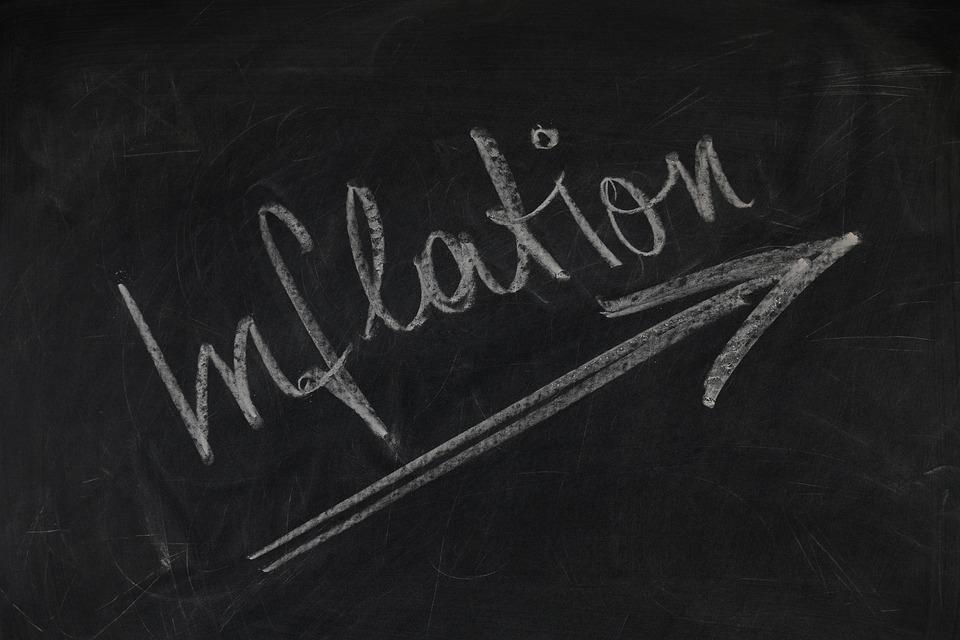Why Government Anti-Inflation Plans Fail

Governments love inflation. It is a hidden tax and a transfer of wealth from bank deposits and real wages to indebted governments that collect more receipts via higher indirect taxes. That is why we cannot expect governments to take decisive action on inflation.
To curb inflation effectively, interest rates must rise to a neutral level relative to inflation, to reduce the excessive increase in credit and new money from negative real rates. Additionally, central banks must end the repurchase of bonds, exchange-traded funds, and mortgage-backed securities, as this would immediately reduce the quantity of currency in circulation.
Finally, and most important of all, governments need to cut deficit spending, which is ultimately financed by more debt and monetized with newly created central bank reserves. These three measures are crucial. One or two would not be enough.
However, governments are unwilling to cut deficit spending. The increase in outlays from 2020 due to extraordinary circumstances has been largely consolidated. As we have seen in previous crises, many of the one-off and temporary measures become permanent, driving mandatory spending to a new all-time high.
Citizens are suffering elevated inflation, and consumer confidence is plummeting to historic lows in the economies that massively increased money supply growth throughout the pandemic, fueling inflationary pressures through money printing well above demand. What do governments implement when this happens? More demand-side policies, spending, and debt.
Imagine for a second that we believed the idea of cost-push inflation and the argument that inflation comes from a supply shock. If that were the case, governments should implement supply-side measures, cutting spending and reducing taxes.
Reducing taxes does not drive inflation higher because it is the same quantity of currency, only a bit more in the hands of those who earn it. Cutting taxes would only be inflationary if demand for goods and services would soar due to higher consumer credit and demand, but that is not the case.
Consumers would only have less difficulties to purchase daily essential goods and services that they acquire anyway. And some would save, which is good. That same money in the hands of government, which weighs more than 40% in the economy, will inevitably be spent and more, with rising public debt.
One unit of currency in the hands of the private sector may be consumed or invested/saved. The same unit in the hands of government is going to current spending and will be multiplied by adding debt, which means more currency in circulation and higher risk of inflation.
Currency supply does not drive more currency demand. It is the opposite. If inflation ends up destroying the private sector consumption ability and the economy goes into recession, demand for currency will fall further from supply growth, keeping inflation elevated for longer.
The rules of supply and demand apply to currency the same as to everything else.
Rising discontent is leading governments to present bold and aggressive anti-inflation plans, yet almost none of those are supply-side measures but demand-side ones. Furthermore, the vast majority imply more spending, higher subsidies, rising debt, and increased money supply, which means higher risk of inflation.
Giving checks with newly printed money creates inflation. Providing more checks to reduce inflation is like stopping a fire with gasoline.
The Bank of International Settlements recently said that “leading economies are close to tipping into a high-inflation world where rapid price rises are normal, dominate daily life and are difficult to quell.”
However, it is only difficult to quell because governments and central banks keep elevated levels of deficit and monetization. In the 70's, media and analysts repeated how difficult it was for governments to cut inflation, but they never explained that you cannot reduce price pressures destroying the purchasing power of the currency that governments monopolize.
Prices do not rise in unison for the same amount of currency. Anti-inflation plans, as they have been presented in numerous countries, are inflationary and hurt those that they pretend to help. Governments should stop helping with other people’s money and supporting by demolishing the purchasing power of their currency. The best way to reduce inflation is to defend real wages and deposit savings.
Disclosure: None



